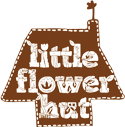Plants Singapore
Flowers & Plants That Repel Bug: Plants that keep bugs away
Having a garden at your house increases the stress-free level that a home need. Having plants surround your house will make it cooler. Maintaining a garden, on the other hand, involves a new set of skills. Gardens usually attract a lot of insects and pests making it harder for homeowners to maintain one. However, there is definitely no need for you to hire pest controllers or spray your garden with high levels of insecticide. You can choose other various options to fight off insects such as physically setting up mosquito nets, but gardeners highly recommend getting flowers and plants that naturally repel bug themselves. You can fight off the mosquitos that roam around your garden by strategically placing these flowers, not only helping you with pest control but also adding beauty to your wonderful garden.
Pretty Flowers as Pest Repellers
- To start off, the violet hues of lavender is not only pretty for the eyes, but it is also one of the top flowers that can repel bugs and mosquitos. The scent of lavender is one of the best smelling perfumes used by humans, however, mosquitos agree otherwise. The scent that lavender gives off is actually repulsive for them. So, if you want to add color to the garden and repel mosquitos and flies as well, plant lavender for your convenience.w

- Marigolds are also at the top of the list of insect-repelling flowers. This flower is actually a favorite among florists. Marigolds are sun-loving, and its flowers grow to a beautiful mix of red, orange, and yellow mixtures. This pretty amber colored flower gives off a scent that repels mosquitos, aphids, spiders, and whiteflies. It also repels rabbits that may feed off your vegetables and fruits. Marigolds can be strategically placed as borders in your garden because they only from 6 inches but usually not exceeding 36 inches.
- Another colorful flower that can work as an insect-repellant is the Petunias. They are often dubbed as “nature’s pesticide” and usually comes in shades of white, purple, blue, yellow and pink. These brightly colored beauties can repel insects such as beetles and aphids and are considered to be low maintenance. All they require is that they are planted in the sunny areas which are actually a perfect place to also have your vegetable garden. Petunias are the perfect plant to protect your garden as well as add beauty to it.
Herbs: More than a Meal Enhancer
Growing herbs in your garden will give you many benefits. You can save money, use it on your meal, and add an air of coolness in your home. So why not take full advantage of its benefits and might as well plant herbs that also act as insect repellants. Here are some of the best choices:
- Basils are one of nature’s pesticides. A staple for different kinds of pasta, this herb is one of the easiest plants to grow indoors. It is actually highly recommended, especially for new gardeners. Aside from its culinary benefits, basil contains a high level of mosquito-repellent volatiles. This volatiles removes the insects’ sensors; thus, they tend to scoot away from this volatiles so that they could recover their senses. In addition, basil oil can also be applied to the bodies or to your windows and terraces so that you can keep these insects away.
- Mints are one of the best insect-repelling herbs. Different types of mints repel different insects. Peppermint tends to keep away mosquitos, flies, and moths. Other types of mints can repel tick and fleas. Mints are a great option because you can utilize them through various ways such as crushing the mint leaves and sprinkling them on the garden, putting them inside sachet bags, or create a homemade insect-repellant by mixing it with rubbing alcohol and using it as a spray. The only downside with mint is that they are very invasive plants. They tend to grow fast and encroach other plants that is why if you are planning to grow one, you have to make sure that you keep a keen eye on mints.
- Another member of the mint family famous for its pesticide like effect is Catnip. Research has already proven that Catnips are in fact more effective than DEET, the most commonly used chemical for commercial insect repellants. You can apply catnip as insect-repellant by using the same methods as you would a normal mint leaf. However, if you have a cat at home, it is recommended for you to find another alternative because when a cat eats, or even so far as just smell a catnip, it would produce effects such as nausea or vomiting. It is, however, not addictive nor harmful to the extent of causing death since catnip only induces a drug-like an effect on cats.
There are many other types of flowers and plants that naturally produce chemicals which insects find repulsive. Lemongrass, rosemary, chrysanthemums, and alliums are also good flowers and plants that can act as pesticides. The Venus Flytrap is also a plant that literally eats ants and insects, but such is rare, and most are most likely hard to handle. There are also other techniques and methods that can ensure your garden has an insect-free environment. It has always been advised that the garden must have no still standing water because they are notorious for being a breeding ground of bugs. You can also make a spray out of the aforementioned flowers and plants to act as insect diffusers. In addition, if you don’t have much time to tend to your garden, then you must avoid adding plants that are attractive to mosquitos such as water lilies, hyacinths, and taros. By following these methods, you will have a garden that is not only pleasing to the eye but is also free form annoying insects.
